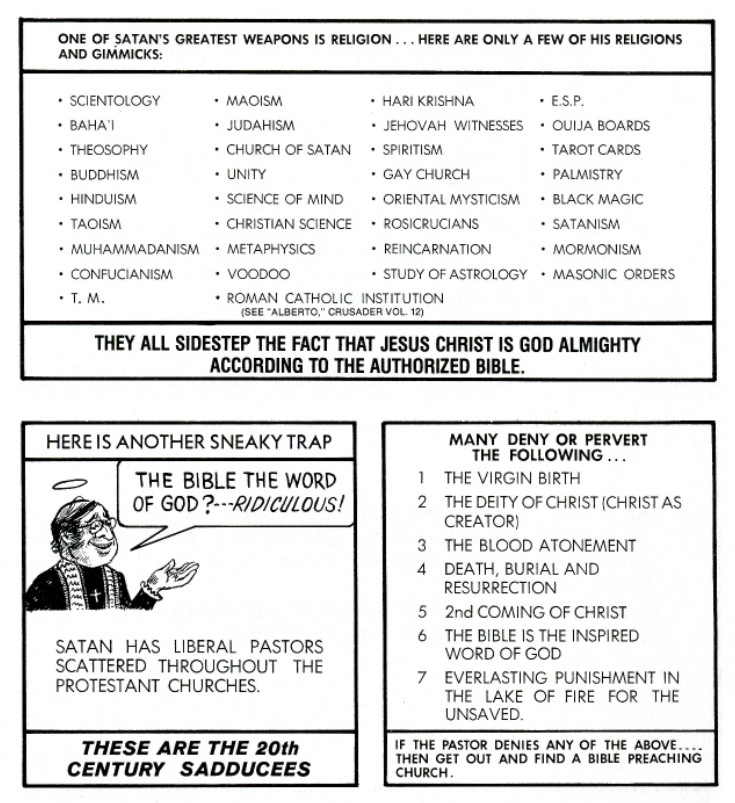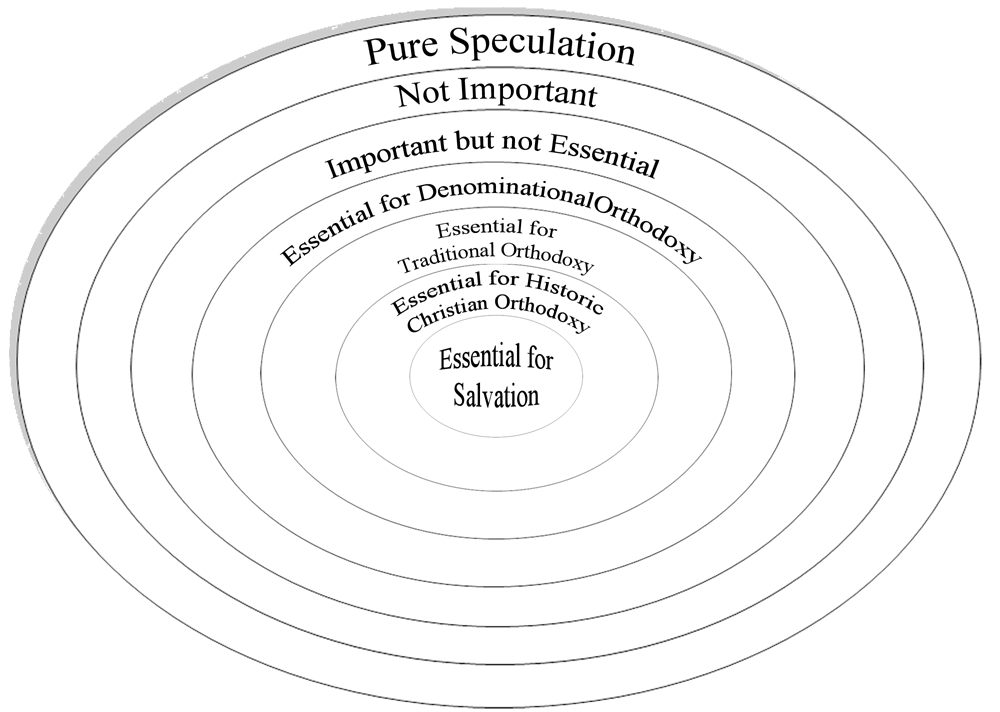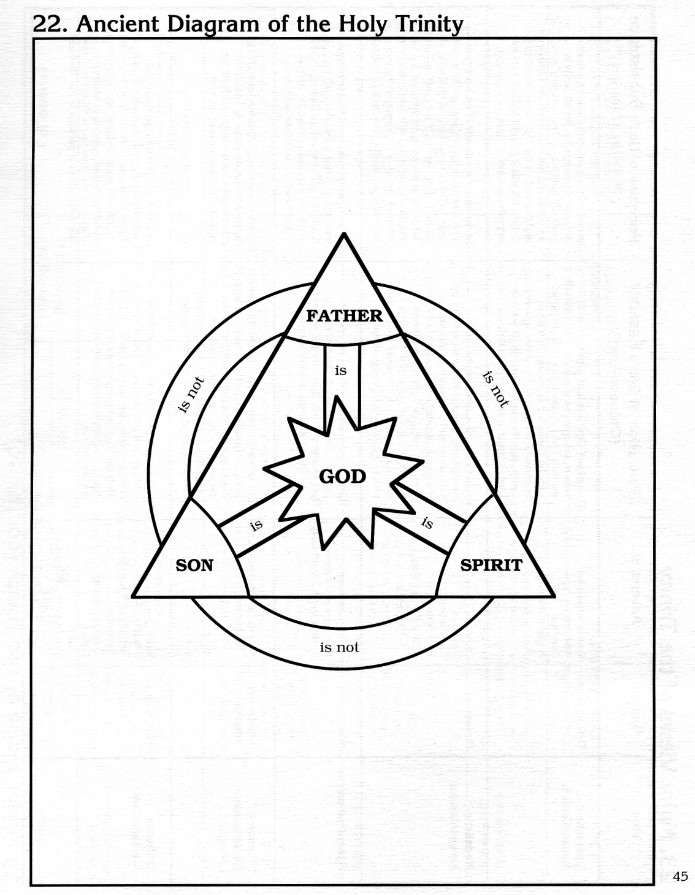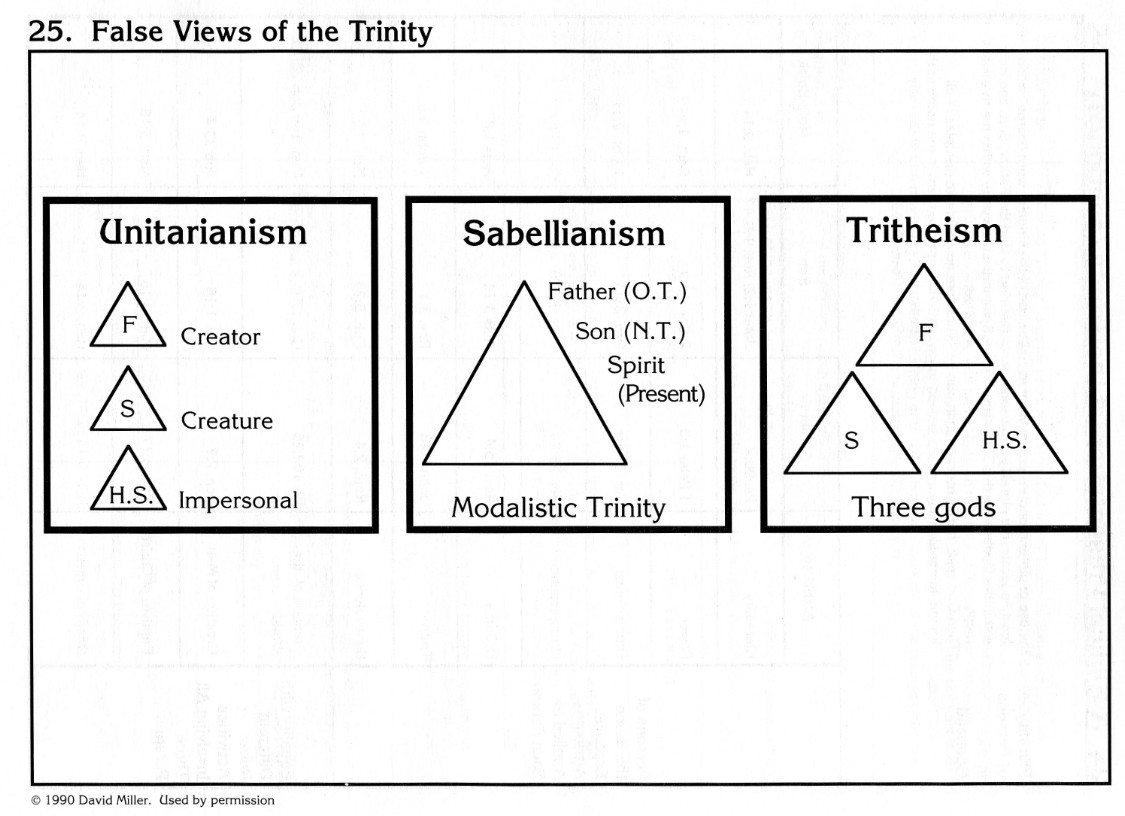Why preach the gospel of Jesus Christ?
Besides it being the Great Commission (Mark 16:15), and possibly saving some from hell . . .
. . . It has a leavening effect on the culture - it teaches personal responsibility, and internal self-discipline
If everyone were a believer, there would be no crime, and no need for jails.
There would be no need for lawyers of any kind.
There would be no alcoholics, drug addicts, domestic violence, rapists, or murderers.
There would be no demand for alcohol, illicit drugs, abortion, prostitution, or psychiatrists.
There would be no porn or STDs.
There would be no Lust, Gluttony, Greed, Sloth, Wrath, Envy, or Pride.
When in jail, it's at that time that many find Jesus and become Christians . . . This makes me wonder - why did we take prayer and Bible reading out of the public school? If people were exposed to God's Word at an early age, then they might have been able to avoid jail to begin with, and been productive members of society.
*************************************************************
What is a Bible believing church?
What are the tenets of a Bible believing church? - see 1 to 7 below, from The Next Step, page 41

From That Old Devil, pages 15-16

--------------------------------------------------------------
To get through a lot of reading, I use text-to-speech software and follow along. I can recommend AT&T Natural Voice Mike.
YouTube - The 6 best Text to Speech engines
--------------------------------------------------------------
Historic Church Documents: creeds, confessions, catechisms and sermons (links appear one screen down)
Some Bibles create FAITH - others DOUBT
--------------------------------------------------------------
In Essentials Unity, In Non-Essentials Liberty, In All Things Charity
In essentials, unity; in non-essentials, liberty; in all things, charity (Part 1)
Essentials and Non-Essentials in a Nutshell

--------------------------------------------------------------
As a witness for Jesus, how would you summarize the message?
. . . We have The Ten Commandments from the Old Testament:
1) You shall have no other gods before me. - Ex 20:3
2) You shall not make for yourself a graven image, or any likeness of anything that is in heaven above, or that is in the earth beneath, or that is in the water under the earth; you shall not bow down to them or serve them; for I the LORD your God am a jealous God, visiting the iniquity of the fathers upon the children to the third and the fourth generation of those who hate me, but showing steadfast love to thousands of those who love me and keep my commandments. - Ex 20:4-6
3) You shall not take the name of the LORD your God in vain; for the LORD will not hold him guiltless who takes his name in vain. - Ex 20:7
4) Remember the sabbath day, to keep it holy. Six days you shall labor, and do all your work; but the seventh day is a sabbath to the LORD your God; in it you shall not do any work, you, or your son, or your daughter, your manservant, or your maidservant, or your cattle, or the sojourner who is within your gates; for in six days the LORD made heaven and earth, the sea, and all that is in them, and rested the seventh day; therefore the LORD blessed the sabbath day and hallowed it. - Ex 20:8-11
5) Honor your father and your mother, that your days may be long in the land which the LORD your God gives you. - Ex 20:12
6) You shall not kill. - Ex 20:13
7) You shall not commit adultery. - Ex 20:14
8) You shall not steal. - Ex 20:15
9) You shall not bear false witness against your neighbor. - Ex 20:16
10) You shall not covet your neighbor's house; you shall not covet your neighbor's wife, or his manservant, or his maidservant, or his ox, or his ass, or anything that is your neighbor's. - Ex 20:17
. . . The Ten Commandments are summed up by these two in the New Testament:
Mt 22:36-40 (NIV) ... 36 “Teacher, which is the greatest commandment in the Law?” 37 Jesus replied: “‘Love the Lord your God with all your heart and with all your soul and with all your mind.’ 38 This is the first and greatest commandment. 39 And the second is like it: ‘Love your neighbor as yourself.’ 40 All the Law and the Prophets hang on these two commandments.”
. . . If someone were to ask me, "How do I show 'love' for God and my neighbor?" ... I'd say by knowing, keeping, and highly revering God's law - which makes sense: don't lie, don't steal, etc . . . but keeping the Law is not the full answer (and it's impossible for us to do this, anyway). We also have faith in the saving work of Jesus. We get our ability to do God's will by the power of the Holy Spirit. The law is still there for teaching and discipline, but we are no longer condemned by it, we live by faith:
Gal 2:19-21 For through the law I died to the law so that I might live for God. I have been crucified with Christ and I no longer live, but Christ lives in me. The life I live in the body, I live by faith in the Son of God, who loved me and gave himself for me. I do not set aside the grace of God, for if righteousness could be gained through the law, Christ died for nothing!"
Gal 3:9-11 So those who have faith are blessed along with Abraham, the man of faith. All who rely on observing the law are under a curse, for it is written: "Cursed is everyone who does not continue to do everything written in the Book of the Law." Clearly no one is justified before God by the law, because, "The righteous will live by faith."
Gal 5:22-23 But the fruit of the Spirit is love, joy, peace, patience, kindness, goodness, faithfulness, gentleness, self-control; against such there is no law.
2Pe 1:5-11 For this very reason, make every effort to add to your faith goodness; and to goodness, knowledge; and to knowledge, self-control; and to self-control, perseverance; and to perseverance, godliness; and to godliness, brotherly kindness; and to brotherly kindness, love. For if you possess these qualities in increasing measure, they will keep you from being ineffective and unproductive in your knowledge of our Lord Jesus Christ. But if anyone does not have them, he is nearsighted and blind, and has forgotten that he has been cleansed from his past sins. Therefore, my brothers, be all the more eager to make your calling and election sure. For if you do these things, you will never fall, and you will receive a rich welcome into the eternal kingdom of our Lord and Savior Jesus Christ.
. . . After being saved, doesn't this mean that we can then sin with no fear of punishment from God? No, we are always to be in repentance of sin, as a way of saying thank you to God for forgiveness (Ro 6:15)
Ro 6:1-18 ... What shall we say then? Shall we continue in sin, that grace may abound? God forbid. How shall we, that are dead to sin, live any longer therein? Know ye not, that so many of us as were baptized into Jesus Christ were baptized into his death? Therefore we are buried with him by baptism into death: that like as Christ was raised up from the dead by the glory of the Father, even so we also should walk in newness of life. For if we have been planted together in the likeness of his death, we shall be also [in the likeness] of [his] resurrection: Knowing this, that our old man is crucified with [him], that the body of sin might be destroyed, that henceforth we should not serve sin. For he that is dead is freed from sin. Now if we be dead with Christ, we believe that we shall also live with him: Knowing that Christ being raised from the dead dieth no more; death hath no more dominion over him. For in that he died, he died unto sin once: but in that he liveth, he liveth unto God. Likewise reckon ye also yourselves to be dead indeed unto sin, but alive unto God through Jesus Christ our Lord. Let not sin therefore reign in your mortal body, that ye should obey it in the lusts thereof. Neither yield ye your members [as] instruments of unrighteousness unto sin: but yield yourselves unto God, as those that are alive from the dead, and your members [as] instruments of righteousness unto God. For sin shall not have dominion over you: for ye are not under the law, but under grace. [6:15] What then? shall we sin, because we are not under the law, but under grace? God forbid. [6:16] Know ye not, that to whom ye yield yourselves servants to obey, his servants ye are to whom ye obey; whether of sin unto death, or of obedience unto righteousness? But God be thanked, that ye were the servants of sin, but ye have obeyed from the heart that form of doctrine which was delivered you. Being then made free from sin, ye became the servants of righteousness.
. . . Another example is the woman taken in adultery (Jn 8:11), Jesus said, "Sin no more" . . .
Jn 8:1-11 ... Jesus went unto the mount of Olives. And early in the morning he came again into the temple, and all the people came unto him; and he sat down, and taught them. And the scribes and Pharisees brought unto him a woman taken in adultery; and when they had set her in the midst, They say unto him, Master, this woman was taken in adultery, in the very act. Now Moses in the law commanded us, that such should be stoned: but what sayest thou? This they said, tempting him, that they might have to accuse him. But Jesus stooped down, and with [his] finger wrote on the ground, [as though he heard them not]. So when they continued asking him, he lifted up himself, and said unto them, He that is without sin among you, let him first cast a stone at her. And again he stooped down, and wrote on the ground. And they which heard [it], being convicted by [their own] conscience, went out one by one, beginning at the eldest, [even] unto the last: and Jesus was left alone, and the woman standing in the midst. When Jesus had lifted up himself, and saw none but the woman, he said unto her, Woman, where are those thine accusers? hath no man condemned thee? [8:11] She said, No man, Lord. And Jesus said unto her, Neither do I condemn thee: go, and sin no more.
Question: "What are the covenants in the Bible?" . . . (we are under the New Covenant)
Answer: The Bible speaks of seven different covenants, three of which (Abrahmic, Palestinian, Davidic) God made with the nation of Israel and are unconditional in nature. That is, regardless of Israel's obedience or disobedience, God still will fulfill these covenants with the nation of Israel. A fourth, the Mosaic Covenant is conditional in nature. That is, this covenant will bring either blessing or cursing depending on Israel's obedience or disobedience. Three covenants (Adamic, Noahic, New) are made between God and mankind in general, and are not limited to the nation of Israel.
The term "covenant" is an unbreakable promise made by God. The "old covenant" law was written on tablets of stone. The "new covenant" is written on our hearts.
--------------------------------------------------------------
From page 45: Ancient Diagram of the Holy Trinity:
Charts of Christian Theology & Doctrine

*************************************************************
Why are there are so many other belief systems out there?
--------------------------------------------------------------
Human reason and logic says: It all depends on your First Principles
The Christian worldview says: . . . First principles - ok - but, only the Holy Spirit can enable you to choose for the things of God, and become a believer in the saving work of Jesus.
Two life changing first principles / facts / primary assumptions:
1.) Jesus never told a lie
2.) The Bible is God's Word to mankind
--------------------------------------------------------------
Example of breaking a primary assumption:
Skepticism of the Bible as being the Word of God, leads to verses being thrown out, gradually at first, and later, ultimately, the entire thing, which leads to chaos and anarchy.
It's the oldest trick in the book: Gen 3:1 "Now the serpent was more subtil than any beast of the field which the LORD God had made. And he said unto the woman, Yea, hath God said, Ye shall not eat of every tree of the garden?"
--------------------------------------------------------------
Grasping For The Wind DVD (a study guide is on the DVD)
Episode One (of 7), Breaking With The Past - Conclusion ... "The Twentieth Century has been marked by unprecedented upheaval in every area of life - The lesson of the 18th to the early 20th century is this. When a culture abandons its religious traditions, as matter of survival, it should find something strong enough to replace these traditions, to give people a sense of meaning and purpose. What we see is that each successive revolution against tradition has not led to some new moral order, but instead to more revolution and dehumanization. The Enlightenment's faith in reason led only to the Romantic movement's rejection of reason in favor of a worship of nature and of primitive man. This in turn was replaced by stark realism and finally pessimism. Just as the ideas of the Enlightenment spawned the French Revolution, so the failure of the Romantic Movement has led to the dehumanized and ruthless society of the 20th century."
Episode Two, Where Are We Going? ... "As we look at the fragmentation of modern society, we realize that this chaos is the result of a change in ideas about the basis of life. As our culture has continued to abandon the traditional religious principles that formed the basis for Western society, we have been influenced by such people as Charles Darwin, Karl Marx and others. One result is a society growing consistently more dehumanized and despairing."
--------------------------------------------------------------
Why are some churches called anti-Christian cults, and others are called denominations?
The Marks of a Cult: A Biblical Analysis
--------------------------------------------------------------
Why preach against false religions? Why not just preach Jesus? ... http://www.chick.com/information/general/chickinfo.asp#religions
How can you say that all other religions besides Christianity are wrong? Isn't this intolerant? ... http://www.chick.com/information/general/chickinfo.asp#tolerance
With all of the different religions, how can I know which one is correct? ... http://www.gotquestions.org/correct-religion.html
Why did God choose Israel to be His chosen people? ... http://www.gotquestions.org/why-God-choose-Israel.html
*************************************************************
Examples of where you see false beliefs in practice:
--------------------------------------------------------------
I heard the UCG on the radio, they have some good material like this:
#43 - Whatever Happened to Sin?
I went to a local church, and learned that they don't believe in hellfire:
Does the Bible Speak of Hellfire That Lasts Forever?
In Charts of Christian Theology & Doctrine, see pages 139-140: Perspectives on Annihilationism, and, Eternal Punishment
Mt 5:30, Mt 10:28, Mt 18:9, Rev 14:10-11, Rev 20:15
Counter arguments: Hell Under Fire: Modern Scholarship Reinvents Eternal Punishment
[Hellfire] is inextricably linked to our understanding of sin. We need to understand what it is that we’re saved from – and God saves us from an eternity in Hell.
I decided to mention the UCG, because I see they advertise on Tripod (on my page!)
They defined away hell during the Enlightenment.
Paraphrased from: Essentials and Non-Essentials in a Nutshell
"Belief in eternal punishment of the unredeemed is Essential for historic Christian orthodoxy: This category includes beliefs "essential for salvation" but are broader in that they express what has been believed by the historic Christian church for the last two thousand years, no matter which tradition . . . this belief is essential, even if it is not as essential as those expressed in the previous category. In other words, it is a non-negotiable. It is still cardinal doctrine."
--------------------------------------------------------------
The UCG also doesn't teach the Trinity:
"There Is One God, the Father...and One Lord, Jesus Christ"
Jesus Christ's Submission to the Father
The Holy Spirit Is Not a Person
So what theology is this?
United Church of God: Armstrongism splinter group.
What are Sabellianism, Modalism, and Monarchianism?
History of Christological Errors in the Early Church
United Church of God; Good News? or Bad News?
--------------------------------------------------------------
So, what is the orthodox Christian teaching on the Trinity? (the word "orthodox" means "straight" teaching)
The creeds of the church were written to correct false teachings (please see below). We see that hell is mentioned also (in the Apostles' Creed and Athanasian) . . .
The Apostles' Creed (as usually recited today) . . . "He descended into hell."
". . . dates from very early times in the Church, a half century or so from the last writings of the New Testament."
Wikipedia: ". . . it has been argued that it was already in written form by the late 2nd century."
"Because of its early origin, it does not address some Christological issues defined in the later Nicene and other Christian Creeds."
Wikipedia: ". . . adopted in the city of Nicaea by the first ecumenical council, which met there in the year 325."
The Definition of the Council of Chalcedon (451 A.D)
The Athanasian Creed ... "Who suffered for our salvation, descended into hell, . . ."
Wikipedia: "The most likely time frame is in the late fifth or early sixth century AD – at least 100 years after Athanasius."
The Anathemas of the Second Council of Constantinople (553 AD)
--------------------------------------------------------------
Paraphrased from: Essentials and Non-Essentials in a Nutshell
"Belief in the doctrine of the Trinity as expressed at Nicea (The Nicene Creed (links appear one screen down)) is Essential for historic Christian orthodoxy: This category includes beliefs "essential for salvation" but are broader in that they express what has been believed by the historic Christian church for the last two thousand years, no matter which tradition . . . this belief is essential, even if it is not as essential as those expressed in the previous category. In other words, it is a non-negotiable. It is still cardinal doctrine."
St. Athanasius of Alexandria (296-373) defended the Trinity by saying that the Son is "of the same substance as the Father": Lk 24:41-43
Doctrine of the Trinity - ReligionFacts
Hymns on the Trinity:
Midi file (click File / Download): St. Patrick's Breastplate, and three translations of the words
All three are referred to in this verse: "Go ye therefore, and teach all nations, baptizing them in the name of the Father, and of the Son, and of the Holy Ghost:" (Mt 28:19)
Google Image Search:
christian sacred trinity symbol
From page 47: Major Views of the Trinity / Criticism of Subordinationism
Charts of Christian Theology & DoctrineIt is at variance with abundant scriptural testimony respecting the deity of both Christ and the Holy Spirit. Its hierarchial concept likewise asserts three essentially separate persons with regard to the Father, Christ, and Holy Spirit. This results in a totally confused soteriology.
Grieving the Holy Spirit - Uploaded by UCG
From page 50 (see diagram below): False Views of the Trinity
Charts of Christian Theology & Doctrine

******************************************************
St. Augustine of Hippo (354-430) defended the faith against the Pelagian error (that man has free will): Jn 3:3, Ro 3:11, 1Co 2:14, Eph 2:4-5
This DVD talks about it: Amazing Grace: The History & Theology of Calvinism DVD
--------------------------------------------------------------
The Narrow Lutheran Middle . . . http://amzn.com/B0066B1TFW . . . from the free chapter (from URL at left):
(Page 1) In religion and theology there is something of a parallel to Aristotle’s search for the middle between two false alternatives, between an overemphasis on some aspect of a truth at the expense of the rest of the truth. Any number of false doctrines are the result of falls off the narrow middle road into ditches on either side of the truth in the middle . . .
(Page 7) The sad fact that Luther experienced before the Reformation was that pastors and theologians knew Aristotle better than they knew Paul. Aristotle, of course, knew nothing of the revealed Word of God. For Aristotle, reason was queen, yes, even a god. In Luther’s day, Aristotle’s very reasonable-sounding philosophy was imposed on the Bible so that whatever the Bible said was forced to fit into one of Aristotle’s categories. The result was that church teaching often appealed to fallen reason but contradicted the apostles and prophets. As brilliant as Aristotle was—and arguably no one outside of the household of faith ever used reason more brilliantly than he—his philosophy has no place as queen in the temple of God. While Aristotle’s use of reason in the formation of logical categories can be helpful in organizing the truths of the Scriptures, his philosophy is no substitute for the light of the gospel. Reason is not light but darkness when it rules as queen over the revealed Word of God . . .
--------------------------------------------------------------
Check out the Audio and Notes on this page:
Chosen & Choosing, How God's life becomes ours - Embracing Grace and Dead Man Walking
Augustinian (Calvinist), Palagian (Functional), Semi-Palagian (Arminian), Anabaptist (Brethren in Christ)
You'll never hear of a born again Calvinist.
What is the fruit of all this theology? It shows that we honor God with our minds.
Note: Christianity is not about being a Calvinist or Arminian, it is about love - but this framework of thought is useful in understanding the issues.
Matthew 22:36-40 (KJV)
36 Master, which is the great commandment in the law?
37 Jesus said unto him, Thou shalt love the Lord thy God with all thy heart, and with all thy soul, and with all thy mind.
38 This is the first and great commandment.
39 And the second is like unto it, Thou shalt love thy neighbour as thyself.
40 On these two commandments hang all the law and the prophets.
******************************************************
St. Irenaeus of Lyons (120-202) defended the faith against the false teachings of ancient Gnosticism:
1Co 15:53-54, 1Ti 1:6-7, 1Ti 4:7, 1Ti 6:20-21, 2Ti 2:14, Tit 1:10, Tit 3:9
Does the Bible teach that Sophia is the goddess of wisdom?
http://www.gotquestions.org/sophia-goddess-wisdom.html
Excellent book, very readable. Reveals the modern day uprising of Gnosticism:
Spirit Wars: Pagan Revival in Christian America
--------------------------------------------------------------
Zeitgeist Moving Forward Official Trailer - [ Extended ] ... watch 2 and 3, forget 1
http://youtu.be/QYLLFpNn4lM
Zeitgeist The Movie, Zeitgeist Addendum, Zeitgeist Moving Forward
http://www.zeitgeistmovie.com/
Scholars back up zeitgeist movie religion and acharya s jesus similarties- pagan mithras
http://youtu.be/lWFv7ic3Agg
Is there any validity to the Zeitgeist movie?
http://www.gotquestions.org/zeitgeist-movie.html
--------------------------------------------------------------